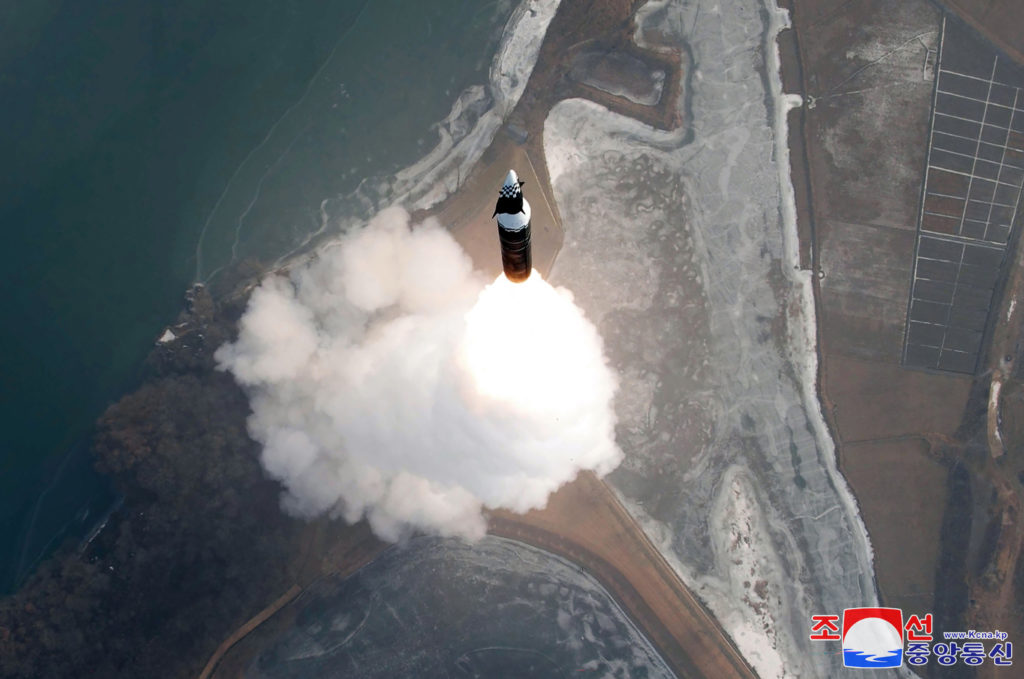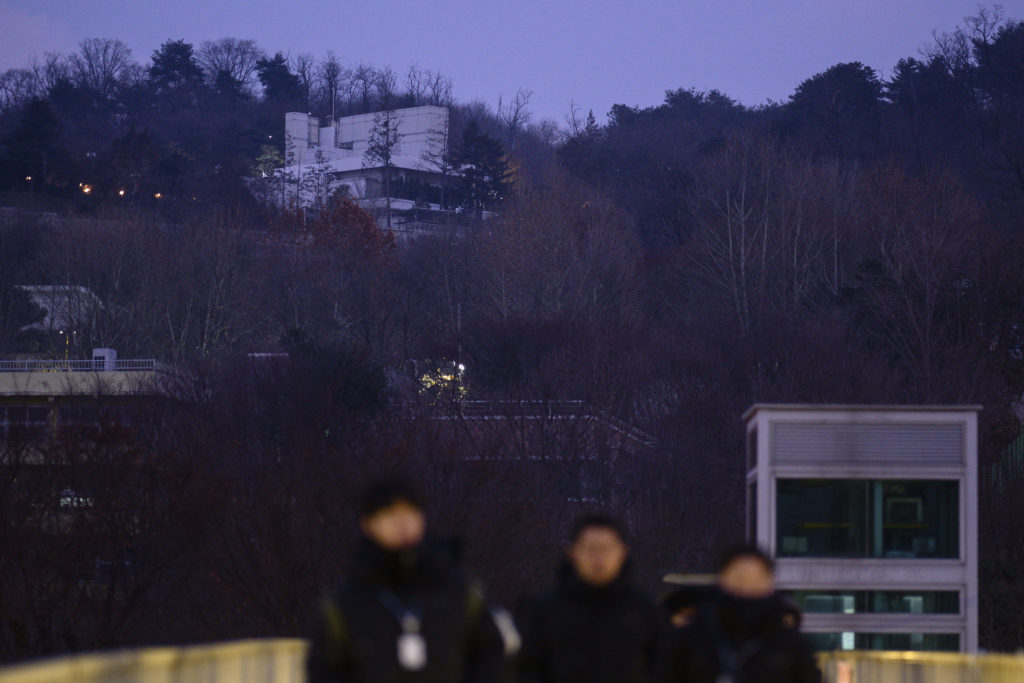Heavy rains and floods lashing western Europe have killed at least 59 people in Germany and nine in Belgium, and many more people are missing as rising waters caused several houses to collapse on Thursday.
In Germany, which is experiencing one of the worst weather disasters since World War II, desperate residents sought refuge on the roofs of their homes as rescue helicopters circled above.
Unusually heavy rains also inundated neighbouring Luxembourg, the Netherlands and Belgium.
On a visit to Washington, German Chancellor Angela Merkel said her “heart goes out” to the victims of the flooding.
“I fear that we will only see the full extent of the disaster in the coming days,” she said, adding that the government is doing its “utmost to help (people) in their distress”.
US President Joe Biden, speaking alongside Merkel at a joint news conference, offered his “sincere condolences and the condolences of the American people for the devastating loss of life and destruction”.
Around 15,000 members of the German emergency services, police and army were on the ground in the worst-hit areas.
Pensioner Annemarie Mueller, 65, looking out at her flooded garden and garage from her balcony, said her town of Mayen had been completely unprepared for the destruction.
“Where did all this rain come from? It’s crazy,” she told AFP, recalling the floodwater crashing through her street during the night.
“It made such a loud noise and given how fast it came down, we thought it would break the door down.”
North Rhine-Westphalia (NRW) premier Armin Laschet, who is running to succeed Merkel in September elections, cancelled a party meeting in Bavaria to survey the damage in his state, Germany’s most populous.
“We will stand by the towns and people who’ve been affected,” Laschet, clad in rubber boots, told reporters in the town of Hagen.
He called for “speeding up” global efforts to fight climate change, underlining the link between global warming and extreme weather.
Because a warmer atmosphere holds more water, climate change increases the risk and intensity of flooding from extreme rainfall.
– ‘Go to higher floors’ –
The North Rhine-Westphalia interior ministry tallied four more bodies recovered, taking the region’s toll to at least 31, while neighbouring Rhineland-Palatinate said nine more deaths were likely in addition to 19 recovered in the region around the western town of Ahrweiler alone.
In the devastated Ahrweiler district around 1,300 people were unaccounted for, although local authorities said the high number was likely down to damaged phone networks.
NRW’s Euskirchen district reported 15 dead, while four more victims were found in the municipality of Schuld south of Bonn where six houses were swept away by floods.
Several other bodies were recovered from flooded cellars across the region.
The environment ministry in Rhineland-Palatinate warned it expected floodwaters on the Rhine and Moselle rivers to rise with more rainfall.
In NRW and Rhineland-Palatinate, some 200,000 households were without power.
Police set up a crisis hotline for reporting missing loved ones and residents were asked to send in videos and photos that could help them in the search.
Regional official Juergen Pfoehler in Ahrweiler urged people to stay home “and, if possible, go to higher floors” of their houses.
The German military deployed some 400 soldiers across the two affected states to assist in rescue efforts.
In the city of Leverkusen, a power outage triggered by the storms led to the evacuation of a hospital with 468 patients.
– Evacuation orders –
Belgium has also seen several days of heavy rain that has caused rivers in the French-speaking region of Wallonia to burst their banks. Four were reported dead.
The provinces of Liege and Namur were especially affected, with the resort town of Spa completely flooded.
Residents in Liege were told Thursday to urgently evacuate neighbourhoods near the banks of the Meuse river.
In the town of Chaudfontaine, daily Le Soir reported that nearly 1,800 people had to evacuate.
The country’s Infrabel rail network said it was suspending services in the southern half of the country, given the risks to travel.
Meanwhile Dutch safety workers have evacuated hundreds of homes in the southern town of Roermond in Limburg province.
The Meuse in Limburg was expected break its banks early on Friday, and to reach its highest level in 200 years, the ANP news agency reported.
Thousands of people were being urged to evacuate their homes, especially in provincial capital Maastricht.
Several municipalities in Limburg have already declared a state of emergency making evacuation compulsory.
The Luxembourg government set up a crisis cell to respond to emergencies triggered by heavy rains overnight as Prime Minister Xavier Bettel reported “several homes” had been flooded and were “no longer inhabitable”.
burs-dlc/mfp/gd/har/tgb/dw











